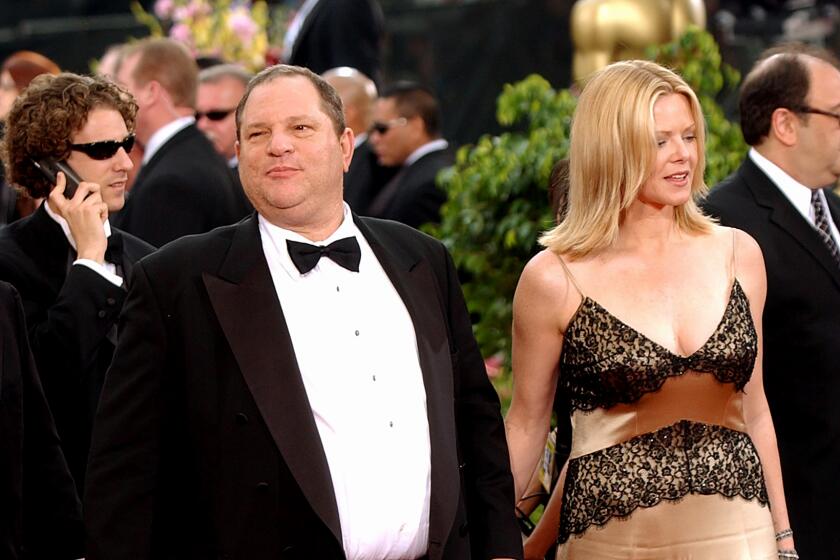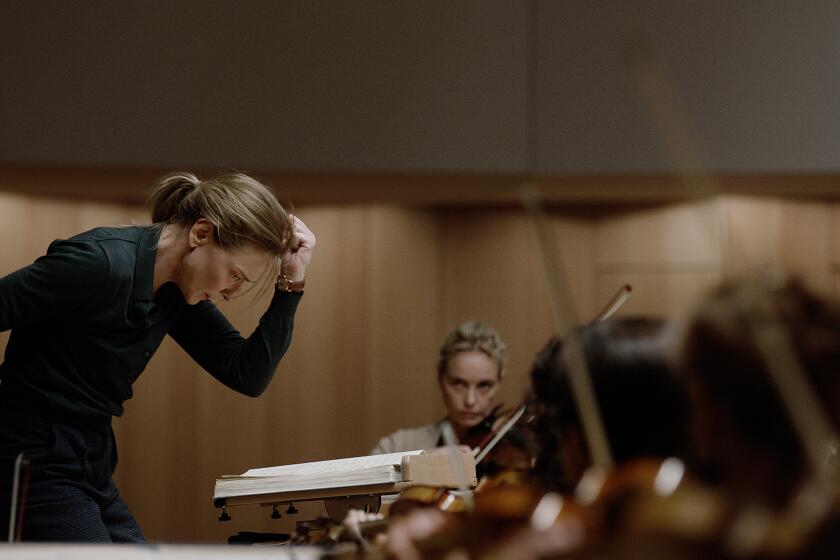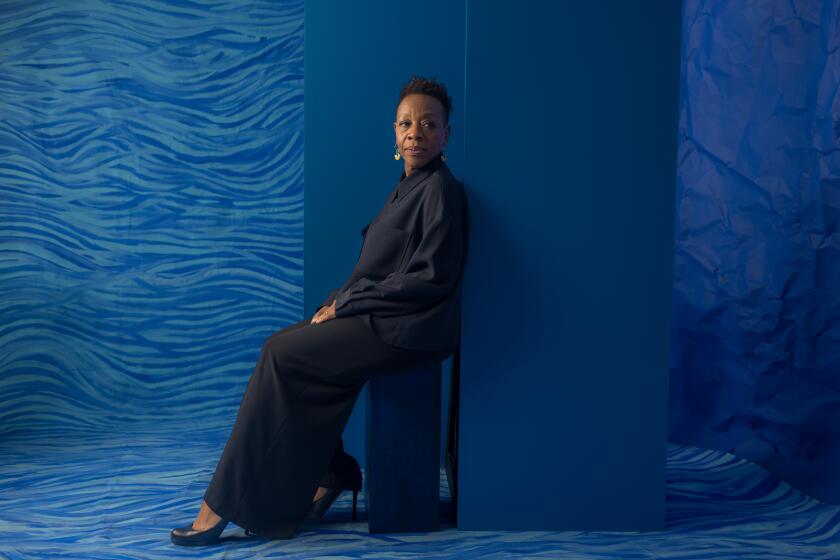Can the Oscars be saved? Academy members can’t even agree on what it would take
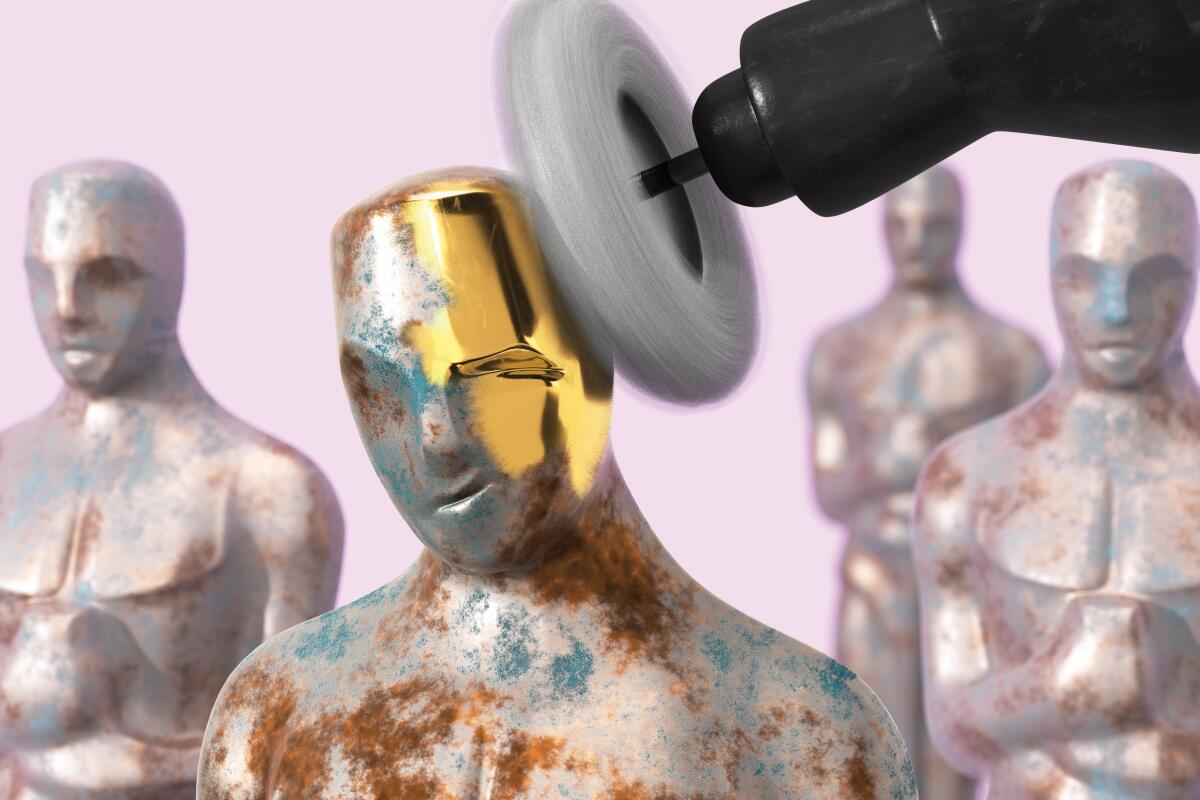
- Share via
Hollywood loves a good comeback story, and this year’s Academy Awards will feature a few of them.
There’s former matinee idol Brendan Fraser, whose turn as a morbidly obese teacher in “The Whale” has earned him a lead actor nomination. There’s onetime child star Ke Huy Quan, who scored a supporting actor nod for “Everything Everywhere All at Once” three decades after stepping away from acting.
Then there are the Oscars themselves, which will be looking for their own shot at redemption on Sunday night.
For those responsible for mounting the Academy Awards — and the millions more who love to watch them — the last two years have been difficult. The 2021 Oscars, dampened by the COVID-19 pandemic, delivered the lowest ratings in the show’s history. Last year’s telecast was preceded by weeks of bitter infighting over the Academy of Motion Picture Arts and Sciences’ decision to shift eight less-starry categories out of the live telecast, then shockingly derailed when Will Smith struck Chris Rock onstage over a joke about his wife, Jada Pinkett Smith.
Much about the 2003 ceremony has aged poorly — or worse. Two decades on, we break down a night that portended a Hollywood reckoning to come.
Even as reverberations from last year’s calamitous telecast continue to be felt — with Rock delivering a blistering 10-minute rejoinder to the Slap in his new Netflix stand-up special — academy leaders hope to turn the page. The producers of this year’s telecast are banking that the inclusion of a handful of bona fide box office smashes in the best picture race, including “Top Gun: Maverick,” “Avatar: The Way of Water” and “Elvis,” will help boost interest in the show.
“We have a lot to celebrate,” says Ricky Kirshner, who is co-producing this year’s telecast with Glenn Weiss. “We have movies that people have seen, big blockbusters with big movie stars, like ‘Top Gun.’ And there’s some great horse races in a lot of different categories, so you’ll need to stay until the end to see who’s going to win this or that award.”
For the beleaguered film industry, which is struggling to return to its pre-pandemic health and beset by nervous chatter about a possible writers’ strike, the Oscars offer a welcome opportunity to self-soothe in a familiar ritual of glamour and joy. Still, there’s no denying the existential challenges facing Hollywood’s biggest night, as the entertainment landscape grows ever more fragmented, pushing movies further from the center of the cultural conversation.
While ratings for the 2022 telecast rebounded from the previous year’s all-time low, it was still the second-lowest-rated show in Oscars history, averaging 15.4 million viewers, down from more than 40 million a decade ago. Last year’s best picture winner, Apple’s heartwarming drama “CODA,” marked the first time a streaming service claimed the academy’s top prize, but it earned just $2 million in theaters.
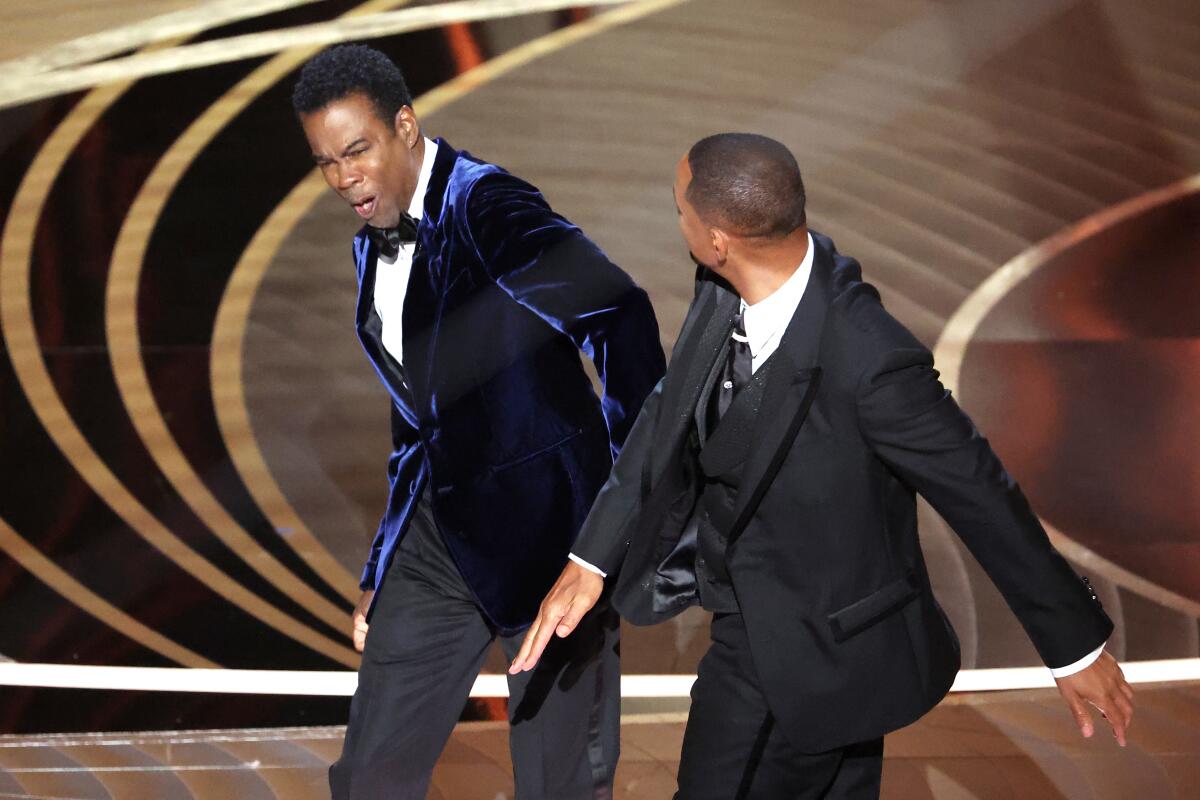
In a telling sign of the diminished status of the Oscars as a must-watch event, HBO — which shifted an episode of its buzzy hit series “The Last of Us” out of the path of the Super Bowl last month — will air the show’s season finale directly opposite the awards telecast.
For an academy that has dramatically swelled in size in recent years to more than 10,000 members, reaching a consensus on how to fix the Oscars — or, indeed, agreeing that they fundamentally need fixing — has proved difficult.
In an effort to revive flagging enthusiasm for the Oscars and trim the show’s notoriously bloated running time, last year the academy shifted eight below-the-line and short-film categories out of the live telecast. In a letter to the group’s members announcing the decision, then-academy President David Rubin wrote, “We must prioritize the television audience to increase viewer engagement and keep the show vital, kinetic, and relevant.”
Nearly a year after Will Smith’s shocking assault at the 2022 Oscars, Rock broke his silence Saturday in the live Netflix special “Selective Outrage.”
After fierce blowback from rank-and-file members, the academy walked back the decision — which failed to produce a shorter show — and announced that this year all 23 awards will be presented live once again. (An earlier effort in 2019 to move four categories to commercial breaks was also scuttled after members protested.)
“We want to return to a show that has reverence for film and 95 years of the Oscars,” academy CEO Bill Kramer, who assumed the reins of the organization last year, said in a roundtable interview with reporters in August. “It’s a moment to really reflect on our membership, all craft areas, our changing industry [and] our fans. … There are ways to do that that are entertaining and authentic and that are tied to our mission to honor excellence in moviemaking. I don’t think that’s mutually exclusive.”

Film producer and former academy governor Bill Mechanic, who co-produced the Oscars in 2010, said the organization’s handling of the controversy highlighted its struggle to adapt. In 2018, Mechanic resigned from the board over his frustrations with the group’s direction.
“Everything about the academy is about not wanting to hurt anyone’s feelings, regardless of the fact that that’s what life often entails,” says Mechanic, who advocates moving certain categories, such as the short-film awards, out of the telecast and finding more ways to recognize the most broadly popular films. “The ratings will continue to dip because the audience doesn’t have a vested interest and the show isn’t shaped. ... There’s nobody leading the parade. It’s the blind leading the blind.”
Even this year’s host, Jimmy Kimmel, who is emceeing the Oscars for the third time, has called out the academy for too often favoring niche critical darlings over more mainstream fare. On his late-night show earlier this year, Kimmel cracked that this year’s best picture field includes “six movies that no one has seen — including a movie called ‘Triangle of Sadness’, which I always thought was a slice of Papa John’s pizza.”
Some academy members share Kimmel’s sentiment. “I think we need to redefine what quality means,” says one member, who like some others interviewed requested anonymity in order to speak candidly about a sensitive subject. “A lot of times ‘quality’ means a certain kind of movie. It’s a movie that walks like a duck and talks like a duck — even if it’s a turkey. We have an idea of ‘This is who the academy is.’ Hopefully that will change with an evolving membership.”
Other academy members point to the show’s antiquated format, which seems increasingly out of step with the sensibility of younger viewers, who seem largely uninterested in awards shows.
We know, we know — deserve’s got nothing to do with it. But still, here are Times film critic Justin Chang’s personal favorites in 11 Oscar categories.
“The younger generation likes to participate or be entertained,” says one longtime academy member. “To sit and watch rich and mostly white people get awards is not their thing. What is their thing is TikTok. Make the show like a series of funny, entertaining, quick-paced and high-energy TikTok videos. Why are they reluctant to embrace a new format?”
Critics within and outside the academy also point to the show’s frequent emphasis on questions of identity and other thorny political issues as a turnoff for a large swath of the viewing public.
“The Oscars have felt tonally very serious and at times self-righteous for the last several years, and they need to get back to throwing an actual party,” says an academy member. “A celebration of your favorite movies of the year should be fun — that should be the North Star. Somehow in an effort to make the Oscars important, they’re rendering themselves meaningless.”
Though they’re keeping many of their plans under wraps, this year’s Oscar producers promise that the telecast will deliver plenty of entertainment value, including a musical performance by Rihanna, hot off her Super Bowl halftime show, of her original song nominee “Lift Me Up” from “Black Panther: Wakanda Forever.”
“If you watch the show, I think you’re going to see something at the very top that is so exciting and has never been seen before on the Oscars — if that’s not a tease, I don’t know what is,” says Weiss, who co-produced the 2019 telecast and will direct the show for the eighth consecutive year.
“We’re not trying to reinvent the format wheel here,” Weiss continues. “What we’re trying to do is to celebrate something that everybody can relate to. We’re telling a story about storytellers, and I think the way we’re telling it is adapting and changing with the times. ... At the end of the day, our metric [for success] is that we’ve tuned out all the noise that’s out there and put on a good show. If you’re having a good time and immersed in the show, that’s the win.”
More to Read
From the Oscars to the Emmys.
Get the Envelope newsletter for exclusive awards season coverage, behind-the-scenes stories from the Envelope podcast and columnist Glenn Whipp’s must-read analysis.
You may occasionally receive promotional content from the Los Angeles Times.
